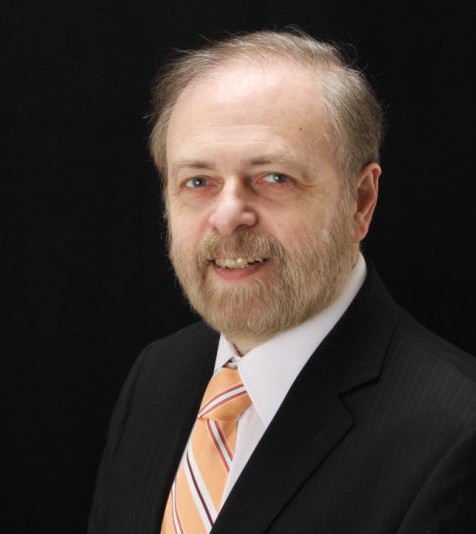By Rabbi Mordechai Levin
I have good news for you, if being exonerated from a crime we did not commit can be considered good news. Pope Benedict XVI wrote in his recently-published book, Jesus of Nazareth: Holy Week, that we are not guilty for the death of our fellow Jew named Jesus, whom Christians believe is God. For almost 20 centuries, the deicide (killing of god) accusation was a common Christian teaching and one of the bases of Christian anti-Semitism, in teachings and actions of discrimination and persecution.
The Rev. Edward H. Flannery, the first director of Catholic-Jewish Relations for the American Bishops’ Committee for Ecumenical and Interreligious Affairs, serving from 1967 to 1976, wrote a book called The Anguish of the Jews about the history of Christian anti-Judaism. He pointed out: “The deicide accusation…was the theological construct that provided the cornerstone of Christian anti-Semitism and laid the foundation upon which all subsequent anti-Semitism would one way or another build.”
In the words of Rev. John T. Pawlikowski, Director of the Catholic-Jewish Studies Program at Catholic Theological Union and a leading figure in the Christian-Jewish dialogue, “There is little question that (anti-Semitism) … has its roots in the teachings of the Church Fathers. Whatever we say about anti-Semitism in the New Testament, its presence is clear as a central component of Christian identity as we enter the Patristic era (First through Eighth Centuries).”
After the murder of six million Jews by the Nazis, the Catholic and Protestant churches became aware that something went wrong with their teachings about Jews and Judaism — because the Shoah (Holocaust) did not happen in Muslim, Buddhist, or Hindu countries: it happened in Christian countries. Consequently, the churches began a process of re-evaluation of their historical position toward Jews and Judaism.
In 1965, during the Second Vatican Council, Pope Paul VI promulgated the historic “Declaration On The Relations of the Church To Non-Christian Religions Nostra Aetate.” The statement rejected this age-old church doctrine by saying, “True, the Jewish authorities and those who followed their lead pressed for the death of Christ; still, what happened in His passion cannot be charged against all the Jews, without distinction, then alive, nor against the Jews of today.” There is no way to know for sure if the first part of the phrase – about Jewish authorities — is true, but the last part is obviously true.
This document laid the foundation on which important declarations, documents and actions were built. A series of significant documents on Catholic-Jewish relations followed. They include: “Guidelines for Implementing the Conciliar Declaration Nostra Aetate” (1974); “Notes on the Correct Way to Present Jews and Judaism in Preaching and Catechesis” (1985); “We Remember: A Reflection on the Shoah ” (1998); “The Jewish People and Their Sacred Scriptures in the Christian Bible” (2001). There are also several others from the American Conference of Catholic Bishops, the European Catholic Bishops’ Conferences, and national churches.
Not only are documents important, actions are, too. No pope has spent more time on Jewish-Catholic relations than John Paul II. He visited the Auschwitz extermination camp, denounced anti-Semitism as a sin against God and humanity, and visited the synagogue in Rome. He called for repentance and the purification of memory in dealing with the Holocaust, and launched diplomatic recognition of the State of Israel. He visited Israel, praying at the Western Wall and at Yad Vashem (the Holocaust Museum in Jerusalem), begging forgiveness for the teachings and behavior of the preceding centuries.
But probably the most important thing he did in this area was to publish the “New Catechism of the Catholic Church” (1992), in which some of the relevant teachings of Nostra Aetate were included. Most Catholics are not aware of those Vatican documents, but they are taught the catechism. The “Compendium of the Catechism of the Catholic Church” (2005), summarizes the teaching with these words: “The passion and death of Jesus cannot be imputed indiscriminately either to all the Jews that were living at that time or to their descendants. Every single sinner, that is, every human being is really the cause and the instrument of the sufferings of the Redeemer; and the greater blame in this respect falls on those above all who are Christians and who the more often fall into sin or delight in their vices.”
Thus, Pope Benedict XVI does not state anything new in his book; he re-affirms Nostra Aetate. The book is not an official Church document. The Pope wrote that: “This work is not, an absolute act of magisterial teaching, but merely an expression, of my personal research, into the face of the Lord. Therefore, everyone is free, to contradict me.” This weakens the importance of his words; nevertheless, the fact that the Pope re-affirms this teaching is a significant contribution to heal Jewish-Catholic relations.
 is the rabbi of Congregation Beth Israel in Munster, IN. He received his rabbinic ordination from the Latin American Rabbinical Seminary, and is a member of the Rabbinical Assembly. In 2010, he was awarded an Honorary Doctorate of Divinity from the Jewish Theological Seminary in New York City for his years of dedicated service to the Conservative movement and the Jewish community...
is the rabbi of Congregation Beth Israel in Munster, IN. He received his rabbinic ordination from the Latin American Rabbinical Seminary, and is a member of the Rabbinical Assembly. In 2010, he was awarded an Honorary Doctorate of Divinity from the Jewish Theological Seminary in New York City for his years of dedicated service to the Conservative movement and the Jewish community...